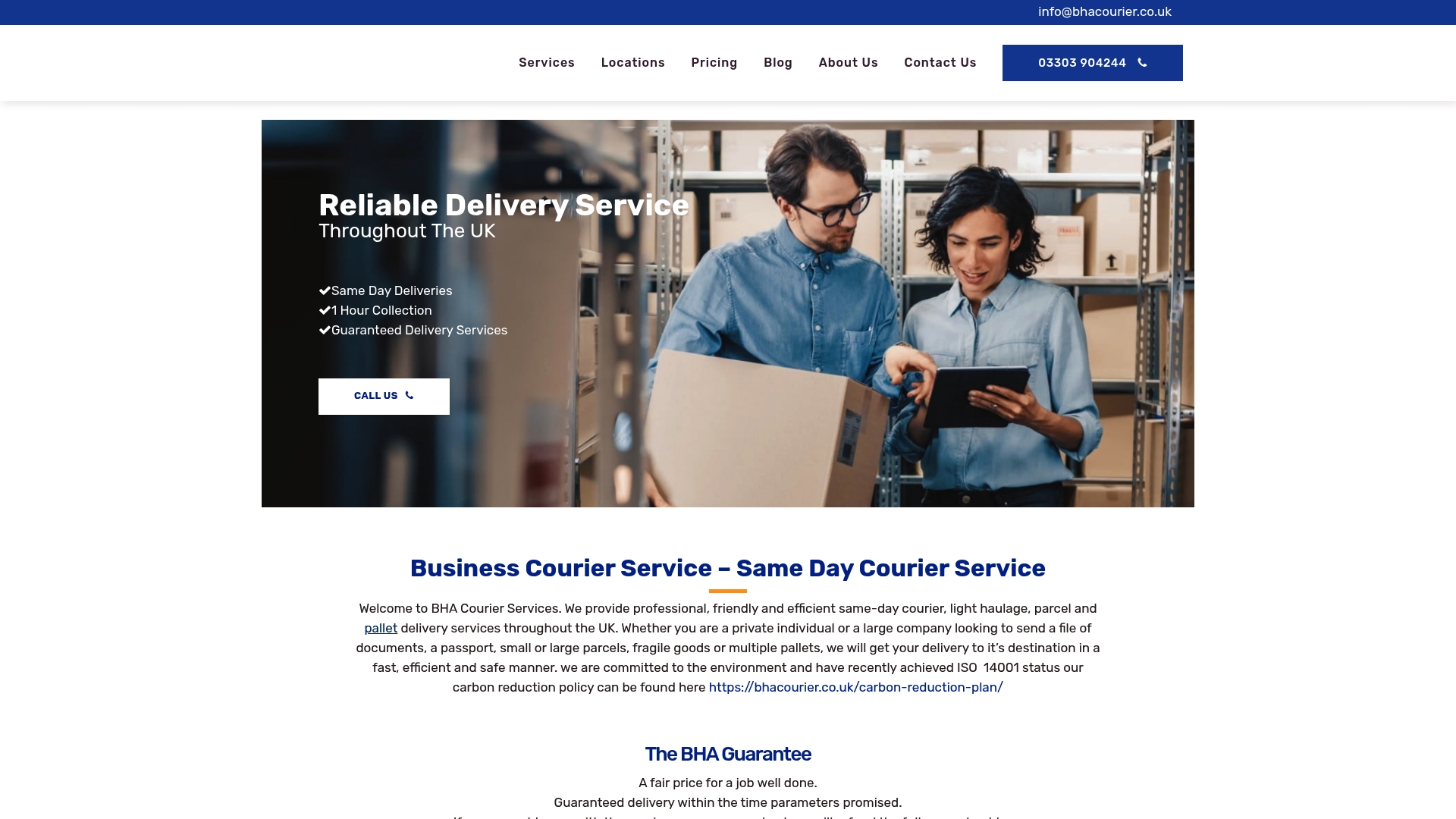
29 Jul Best Business Communication Channels UK 2025 Guide
Business communication is changing faster than ever and savvy UK companies are now juggling a dizzying mix of emails, instant messages, and video calls. Here is what might surprise you. Over 87 percent of UK businesses now rely primarily on digital platforms for daily operations. Traditional face-to-face chats and phone calls are not fading away as quickly as you might think. Some of the most successful teams in 2025 are actually bringing back classic communication styles to get ahead of the curve.
Table of Contents
- Types Of Business Communication Channels In The UK
- Choosing The Right Channel For Your Business
- Improving Efficiency With Modern Communication Tools
- Best Practices For UK Businesses In 2025
Quick Summary
| Takeaway | Explanation |
|---|---|
| Utilise digital platforms for efficiency | Leverage email, messaging, and video conferencing to enhance internal and external business communication. |
| Assess communication needs before choosing channels | Evaluate factors like urgency, complexity, and audience to select the most effective communication method. |
| Embrace emerging technologies for better interaction | Integrate AI, chatbots, and cloud-based tools to personalise and streamline business communications. |
| Foster a culture of open communication | Create environments that encourage regular dialogue and feedback among team members to enhance collaboration. |
| Implement unified communication systems for resilience | Adopt integrated platforms that support diverse communication methods to maintain effectiveness during crises. |
Types of Business Communication Channels in the UK
Business communication channels have dramatically transformed in recent years, presenting organisations with multiple strategies for connecting and collaborating. Understanding the landscape of communication technologies is crucial for maintaining competitive advantage and operational efficiency in the UK business environment.
Digital Communication Platforms
Digital communication platforms have revolutionised how businesses interact internally and externally. According to research published on ResearchGate, modern communication channels significantly impact business processes, with email, messaging services, video calls, and social networks emerging as primary tools.
Email remains a fundamental communication channel, allowing businesses to send detailed information, contracts, and documentation quickly and securely. Instant messaging platforms like Slack and Microsoft Teams have gained substantial popularity, enabling real-time collaboration and reducing communication delays. Video conferencing tools such as Zoom and Google Meet have become essential, particularly after the pandemic accelerated remote working trends.
Traditional Communication Methods
Despite digital transformation, traditional communication methods continue to play a critical role. Research analyzing communication effectiveness indicates that telephone calls remain universally successful for business interactions.
Telephone communication offers immediate interaction, allowing nuanced conversation and rapid problem-solving. Physical meetings and face-to-face consultations, while reduced, still hold significant value for complex negotiations, strategic planning, and building interpersonal relationships. Postal communication, though diminished, remains relevant for legal documents, formal contracts, and certain official communications.
Emerging Communication Technologies
The future of business communication is increasingly shaped by emerging technologies. Artificial intelligence-powered chatbots, advanced customer relationship management systems, and integrated communication platforms are transforming how businesses interact.
These technologies enable more personalised, efficient, and data-driven communication strategies. Cloud-based collaboration tools are becoming sophisticated, allowing seamless integration of various communication channels and providing businesses with flexible, scalable solutions. Explore our guide on efficient delivery solutions that complement modern communication technologies.
Navigating this complex communication landscape requires strategic thinking, adaptability, and a willingness to embrace technological innovations that enhance connectivity and productivity.
Here is a comparison table summarising the main types of business communication channels mentioned, including their primary benefits and typical use cases.
| Channel Type | Examples | Main Benefits | Typical Use Cases |
|---|---|---|---|
| Digital Platforms | Email, Slack, Teams, Zoom, Google Meet | Speed, real-time collaboration, flexibility | Internal comms, remote work, updates |
| Traditional Methods | Telephone, face-to-face, post | Nuanced interaction, relationship building | Negotiations, legal docs, complex discussions |
| Emerging Technologies | AI chatbots, cloud tools, CRM systems | Personalisation, data-driven, scalability | Customer support, integrated workflows |
Choosing the Right Channel for Your Business
Selecting the most appropriate communication channel is a critical strategic decision that can significantly impact business efficiency, client relationships, and overall organisational performance. The process requires careful consideration of multiple factors to ensure effective and meaningful communication.
Assessing Communication Needs and Goals
Understanding your specific business communication requirements is the first step in channel selection. Different communication objectives demand varied approaches. According to research on business communication strategies, organisations must evaluate several key considerations when choosing communication channels.
Factors to consider include:
- Urgency of message: Time-sensitive information requires immediate channels like phone or instant messaging.
- Complexity of communication: Technical or detailed discussions might benefit from email or video conferencing.
- Audience preferences: Different stakeholders may have varied communication expectations.
- Confidentiality requirements: Sensitive information needs secure communication platforms.

Matching Channels to Business Context
Each business communication channel offers unique advantages and limitations. Telephone communication research highlights that different channels suit different communication scenarios.
For instance, client negotiations might require face-to-face meetings or video conferences to build trust and read non-verbal cues. Internal team collaborations could leverage instant messaging platforms for quick exchanges, while comprehensive project updates might be best communicated through detailed email reports.
Technology and Infrastructure Considerations
Technological capabilities and organisational infrastructure play a crucial role in communication channel selection. Businesses must evaluate their existing technological ecosystem, budget constraints, and potential integration capabilities.
Cloud-based communication tools offer flexibility and scalability, enabling businesses to adapt quickly to changing communication needs. Learn more about our efficient delivery solutions that complement modern communication strategies.
Consider factors such as:
- Cost of implementation
- User accessibility
- Security protocols
- Compatibility with existing systems
Successful communication channel selection is not a one-size-fits-all approach. It requires ongoing assessment, flexibility, and a willingness to adapt to evolving business communication technologies and stakeholder expectations. Regular review and optimization of communication strategies can provide significant competitive advantages in today’s dynamic business environment.
Here is a summary table organising the key factors to consider when choosing a business communication channel, as discussed in the section above.
| Factor | Why It Matters | Channel Examples (from article) |
|---|---|---|
| Urgency of Message | Determines speed of response needed | Phone, instant messaging |
| Complexity of Communication | Complex info may need detailed or interactive channels | Email, video conferencing |
| Audience Preferences | Stakeholders may have different expectations | Varies |
| Confidentiality | Sensitive data requires secure, trusted platforms | Secure email, secure messaging |
| Organisational Technology | Compatibility and user adoption affect effectiveness | Cloud tools, integrated platforms |
Improving Efficiency with Modern Communication Tools
Modern communication tools have fundamentally transformed how businesses operate, creating opportunities for enhanced productivity, collaboration, and strategic communication. As technology continues to evolve, organisations are increasingly leveraging sophisticated digital platforms to streamline their communication processes and drive operational efficiency.
Enterprise Social Media and Collaborative Platforms
Research on Enterprise Social Media Platforms (ESMPs) reveals significant improvements in corporate communication networks. These platforms excel at connecting employees across different hierarchical levels, facilitating information flow and breaking down traditional communication barriers.
Enterprise social media tools enable organisations to create more interconnected and responsive communication ecosystems. By allowing seamless information sharing, these platforms support real-time collaboration, knowledge transfer, and cross-departmental communication. Features like instant messaging, file sharing, and integrated project management capabilities help teams work more efficiently and maintain transparent communication channels.
Digital Tools and Project Performance
A comprehensive study investigating digital communication tools during the COVID-19 lockdown demonstrated remarkable insights into their impact on project performance. The research highlighted that user adoption and ease of use significantly influenced the effectiveness of digital communication technologies.
Key advantages of modern communication tools include:
- Rapid information exchange
- Enhanced remote collaboration
- Reduced communication latency
- Improved project tracking and accountability
Businesses that successfully integrate these tools can create more agile, responsive, and connected work environments. Learn about our efficient delivery solutions that complement modern communication strategies and support streamlined business operations.
Maximising Organisational Efficiency
Recent research in applied business management emphasises the importance of creating collaborative environments that foster employee satisfaction and communication effectiveness.
To maximise efficiency, organisations should focus on:
- Selecting intuitive and user-friendly communication platforms
- Providing comprehensive training and support
- Establishing clear communication protocols
- Regularly evaluating and updating communication technologies
Successful implementation of modern communication tools requires a strategic approach that balances technological capabilities with human factors. By creating an environment that supports open, efficient, and engaging communication, businesses can unlock significant productivity gains and create more dynamic, responsive organisational cultures.
The future of business communication lies in continuous adaptation, technological integration, and a commitment to creating communication ecosystems that empower employees and drive strategic objectives.
Best Practices for UK Businesses in 2025
As businesses navigate the complex communication landscape of 2025, adopting strategic approaches becomes crucial for maintaining competitive advantage and operational excellence. The evolving technological ecosystem demands sophisticated, adaptable communication strategies that prioritise efficiency, engagement, and seamless connectivity.
Strategic Communication Channel Management
The UK Government Communication Service emphasises the critical importance of selecting appropriate communication channels based on specific organisational needs. Businesses must develop a nuanced, multi-channel approach that considers audience diversity, message complexity, and communication objectives.
Key strategic considerations include:
- Audience segmentation: Tailoring communication methods to different employee groups
- Message prioritisation: Matching communication channels to message urgency and complexity
- Two-way communication: Creating platforms that encourage dialogue and feedback
Effective communication channel management requires continuous assessment and flexibility, ensuring that communication strategies remain responsive to changing organisational dynamics.
Crisis Communication and Technological Integration
Research from the 2025 International Employee Communication Impact Study highlights the transformative potential of modern internal communication technologies. During critical periods, organisations must leverage unified communication platforms that provide robust, multi-channel crisis communication capabilities.
Advanced communication technologies enable businesses to:
- Rapid information dissemination
- Maintain organisational resilience
- Ensure consistent messaging across platforms
- Support remote and distributed workforce scenarios
Check out our efficient delivery solutions that complement modern communication infrastructure and support business continuity.
Unified Communications and Future-Proofing
TechRadar discusses the emergence of Unified Communications as a Service (UCaaS) as a transformative technology for digital workforces. By consolidating voice, video, messaging, and collaboration tools into integrated cloud-based platforms, businesses can create more agile and responsive communication ecosystems.
To future-proof communication strategies, organisations should focus on:
- Implementing scalable communication technologies
- Investing in employee digital literacy training
- Developing flexible communication protocols
- Regularly auditing and updating communication infrastructure
Successful communication in 2025 demands a holistic approach that balances technological innovation with human-centric design. By creating adaptive, intuitive communication environments, UK businesses can enhance collaboration, productivity, and organisational resilience in an increasingly complex digital landscape.

Frequently Asked Questions
What are the most effective business communication channels in the UK in 2025?
Digital communication platforms such as email, instant messaging, and video conferencing are the most effective channels. Traditional methods like telephone calls and face-to-face meetings still hold value for specific contexts.
How do I choose the right communication channel for my business?
To choose the right channel, consider factors like the urgency and complexity of the message, the audience’s preferences, and confidentiality needs. Assess your organisational technology and infrastructure to ensure compatibility.
What role do emerging technologies play in business communication?
Emerging technologies, such as AI-powered chatbots and integrated communication platforms, enhance personalisation, streamline processes, and improve efficiency in business communication strategies.
How can businesses improve efficiency with modern communication tools?
To improve efficiency, businesses should adopt user-friendly communication platforms, provide training, establish clear protocols, and regularly evaluate technology to ensure it meets evolving communication needs.
Elevate Your Business Communication With Reliable Delivery
The world of business communication relies on speed, clarity, and trust. As your company embraces digital channels and cutting-edge technologies, a missing link can quickly derail productivity or jeopardise urgent deals. The guide explains how vital swift document transfer and secure delivery are for maintaining seamless internal and external communications. Managing time-critical contracts, confidential records, or sensitive packages means you cannot afford costly delays or uncertain arrivals. BHA Courier understands these challenges and offers you a robust solution that perfectly complements your modern communication strategy.

Choose BHA Courier for rapid, secure, and fully traceable delivery solutions across the UK. Whether you are integrating new digital tools or dealing with confidential paperwork, our trusted same-day and next-day courier services keep your communications moving as fast as your business demands. Every delivery includes real-time tracking for peace of mind, and our professional team provides the reliability and responsiveness you need when stakes are high. Experience effortless booking, flexible options for fragile or urgent items, and comprehensive coverage that adapts to your infrastructure. Ready to strengthen your business communication advantage? Visit BHA Courier and ensure every vital message arrives safely and on time.


